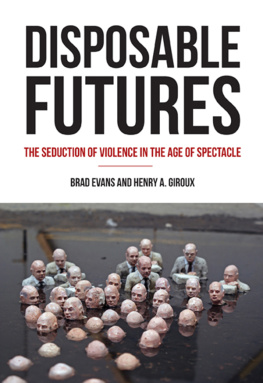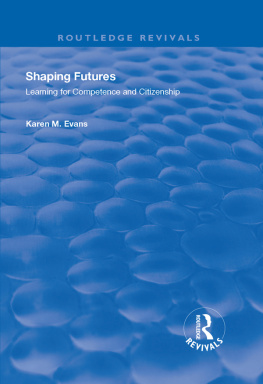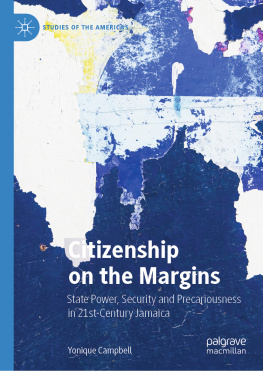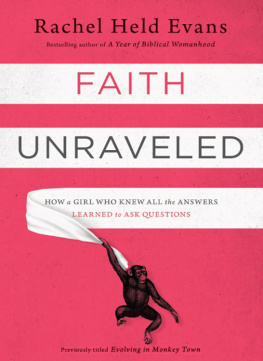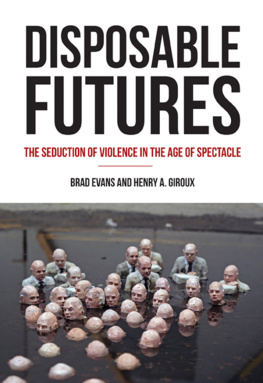PRAISE FOR DISPOSABLE FUTURES
Beginning with Primo Levi and ending with Deleuze, Evans and Giroux map the radical transformation that has affected the representation of cruelty between the 20th and the 21st century: from exceptional status, associated with the ultimate figures of state sovereignty, it has passed to routinized object of communication, consumption and manipulation. This is not to say that everything is visible, only that the protocols of visibility have been appropriated by a different form of economy, where humans are completely disposable. To counter this violence in the second degree, and preserve our capacity to face the intolerable, a new aesthetics and politics of imagination is required. This powerful, committed, exciting book does more than just evoke its urgency. It already practices it. tienne Balibar, author of Violence and Civility
Disposable Futures confronts a key conundrum of our times: How is it that, given the capacity and abundance of resources to address the critical needs of all, so many are having their futures radically discounted while the privileged few dramatically increase their wealth and power? Brad Evans and Henry Giroux have written a trenchant analysis of the logic of late capitalism that has rendered it normal to dispose of any who do not service the powerful. A searing indictment of the socio-technics of destruction and the decisions of their deployability. Anyone concerned with trying to comprehend these driving dynamics of our time would be well served by taking up this compelling book. David Theo Goldberg, author of The Threat of Race: Reflections on Racial Neoliberalism
Brad Evans and Henry Giroux offer a trenchant analysis of neoliberalisms ills: its violence, its dystopian vision, its intrusiveness, and its attempt to eradicate all critical consciousness and with it all hope. They diagnose our exposure to disposability in an era marked by the collapse of a vision of a viable future. In doing so, they have laid out the challenge before us. The only question left is, do we have the will, as the authors suggest, to fabricate a nonviolent response to it? Todd May, Class of 1941 Memorial Professor of the Humanities, Clemson University
Disposable Futures poses, and answers, the pressing question of our times: How is it that in this post-Fascist, postCold War era of peace and prosperity we are saddled with more war, violence, inequality, and poverty than ever? The neoliberal era, Evans and Giroux brilliantly reveal, is defined by violence, by drone strikes, smart bombs, militarized police, Black lives taken, prison expansion, corporatized education, surveillance, the raw violence of racism, patriarchy, starvation, and want. The authors show how the neoliberal regime normalizes violence, renders its victims disposable, commodifies the spectacle of relentless violence and sells it to us as entertainment, and tries to contain cultures of resistance. If youre not afraid of the truth in these dark times, then read this book. It is a beacon of light. Robin D. G. Kelley, author of Freedom Dreams: The Black Radical Imagination
Disposable Futures is an utterly spellbinding analysis of violence in the later 20th and early 21st centuries. It strikes me as a new breed of street-smart intellectualism moving through broad-ranging theoretical influences of Adorno, Arendt, Bauman, Deleuze, Foucault, iek, Marcuse, and Reich. I especially appreciated the discussion of representation and how it functions within a broader logics of power; the descriptions and analyses of violence mediating the social field and fracturing it through paralyzing fear and anxiety; the colonization of bodies and pleasures; and the nuanced discussion of how state violence, surveillance, and disposability connect. Big ideas explained using a fresh, straightforward voice. Adrian Parr, author of The Wrath of Capital: Neoliberalism and Climate Change Politics
DISPOSABLE
FUTURES
THE SEDUCTION OF VIOLENCE IN THE AGE OF SPECTACLE
BRAD EVANS AND HENRY A. GIROUX

Open Media Series | City Lights Books
Copyright 2015 by Brad Evans and Henry A. Giroux
All Rights Reserved
Open Media Series Editor: Greg Ruggiero
Front cover art: Isaac Cordal
Library of Congress Cataloging-in-Publication Data
Evans, Brad, 1968
Disposable futures : the seduction of violence in the age of spectacle / Brad
Evans and Henry A. Giroux.
pages cm. (City lights open media)
Includes bibliographical references and index.
ISBN 978-0-87286-658-4 (paperback)
ISBN 978-0-87286-659-1 (e-book)
1. Violence. 2. ViolencePolitical aspects. I. Giroux, Henry A. II. Title.
HM886.E93 2015
303.6dc23
2015004112
City Lights Books
Open Media Series
www.citylights.com
For Tony Penna, my mentor and lost friend.
HENRY GIROUX
For Amelie, my beautiful little girl
BRAD EVANS
PREFACE
THE DROWNING
Writing one of the most important personal testimonies on the extreme horrors of the twentieth centry, Primo Levi observes: Logic and morality made it impossible to accept an illogical and immoral reality; they engendered a rejection of reality which as a rule led the cultivated man rapidly to despair. Indeed, the tragedy of ideological fascism for Levi is both the forced complicity of victims into systems of brutal slaughter, and the seductions of violence made desirable by those interned to render them accomplices in their own destruction. As he further states, the harsher the oppression, the more widespread among the oppressed is the willingness, with all its infinite nuances and motivations, to collaborate: terror, ideological seduction, servile imitation of the victor, myopic desire for any power whatsoever. Central to Levis analysis here is the way in which the spectacle of violence becomes a substitute for human empowermenta last refuge if you willfor those who are already condemned by the system.
Levi exposes us to the depths of human depravity and the dehumanization of our worldly fellows. He also warns us about the dangers of reducing the human condition to questions of pure survival, such that a truly dystopian condition accentuates the logic of violence by seducing the oppressed to desire their own oppression or to imagine a world in which the only condition of agency is survival. Eventually, as Levi points out, the spectacle of violence becomes so ingrained that everybody is infected, to the extent that clear lines concerning morality, ethics, and political affinities blur into what he termed the gray zone. If the system strips some lives of all sense of humanity and dignitythe killing of the subject while the person is still aliveso they come to embody what he named the drowned, those who remain are forever burdened by the guilt of surviving, the shame of being saved from a wretchedness that destroys the very notion of humanity.
Levis notion of disposability was rooted in a brutalism in which genocide became a policy and the slaughter of millions the means to an end. What Levi couldnt have foreseen given the extreme dystopian historical circumstances of his time, however, was that disposability or the notion of intolerable violence and suffering in the twenty-first century would be recast by the very regimes that claimed to defeat ideological fascism. We are not in any way suggesting a uniform history here. The spectacle of violence is neither a universal nor a transcendental force haunting social relations. It emerges in different forms under distinct social formations, and signals in different ways how cultural politics works necessarily as a pedagogical force. The spectacle of violence takes on a kind of doubling, both in the production of subjects willing to serve the political and economic power represented by the spectacle and increasingly in the production of political and economic power willing to serve the spectacle itself. In this instance, the spectacle of violence exceeds its own pedagogical aims by bypassing even the minimalist democratic gesture of gaining consent from the subjects whose interests are supposed to be served by state power.
Next page
